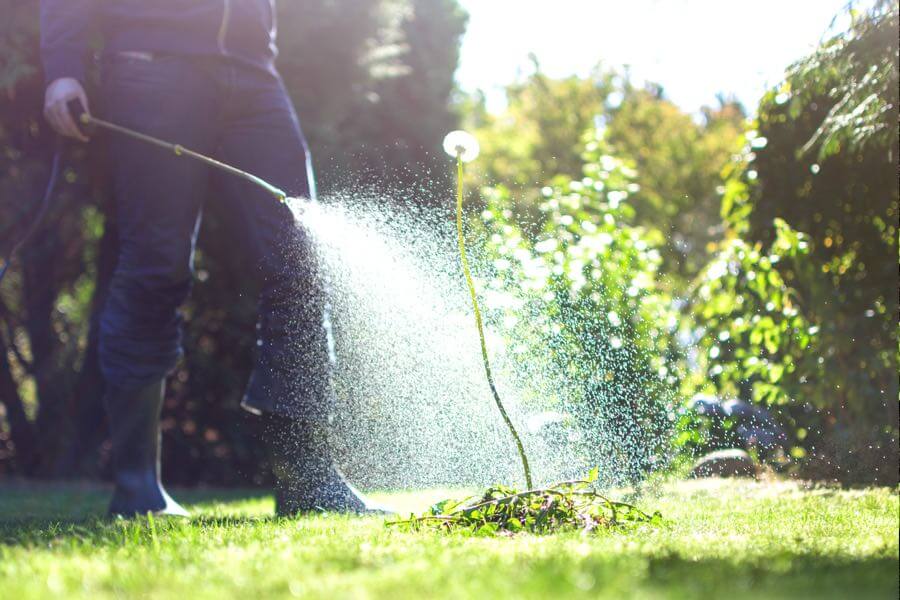Landmark Verdict Awards $2.25B in Roundup Cancer Lawsuit
Editors carefully fact-check all Consumer Notice, LLC content for accuracy and quality.
Consumer Notice, LLC has a stringent fact-checking process. It starts with our strict sourcing guidelines.
We only gather information from credible sources. This includes peer-reviewed medical journals, reputable media outlets, government reports, court records and interviews with qualified experts.

A Pennsylvania man who claimed exposure to Bayer’s Roundup weed killer caused him to develop cancer has been awarded $2.25 billion.
John McKivison was awarded the major payout on Jan. 26 after a jury found his non-Hodgkin lymphoma was caused by using Roundup at his home for yard work.
The verdict includes $2 billion in punitive damages and $250 million in compensatory damages.
“The jury’s punitive damages award sends a clear message that this multinational corporation needs top to bottom change,” McKivison’s attorneys said in a joint statement.
McKivison, 49, claimed he used the product for 20 years and was diagnosed with cancer. The jury’s verdict in his favor was unanimous.
Bayer, the parent company of Monsanto, plans to appeal the verdict and called the damages “unconstitutionally excessive” and in conflict “with the overwhelming weight of scientific evidence and worldwide regulatory and scientific assessments,” according to a statement.
The main ingredient in Roundup is glyphosate, a widely used chemical that has been in use since the 1970s. The U.S. Environmental Protection Agency found in 2020 that it is “unlikely to be a human carcinogen.”
While the World Health Organization’s International Agency for Research on Cancer found in 2015 that the chemical is “probably carcinogenic to humans.
Series of Verdicts Results in Massive Payouts
Many people who have received a cancer diagnosis after regularly using Roundup have filed lawsuits against Bayer. Courts have grouped thousands of these individual lawsuits into ongoing multidistrict litigation. As of January 2024, there were 4,177 Roundup lawsuits pending in California.
Bayer’s website dedicated to the Roundup litigation, including the latest trial, states it will appeal the decisions. Since May 2023, plaintiffs have been awarded more than $4 billion in damages. McKivison’s trial was the highest compensatory and punitive damages to date.
The company states “previous damage awards have been reduced by more than 90% overall in final judgements.”
“While we have great sympathy for the plaintiff in this case, we are confident that our products can be used safely and are not carcinogenic, consistent with the assessments of expert regulators worldwide,” the company wrote in a statement on the McKivison verdict.
Amidst numerous ongoing personal injury cases and environmental lawsuits, the company is still far from concluding its legal battles.
Bayer, a German company, acquired the U.S. agrochemical company Monsanto, in 2018. To reduce the chances of future litigation, it has reformulated the U.S. residential lawn and garden products with different active ingredients.
“We have taken this action exclusively to manage litigation risk and not because of any safety concerns,” according to Bayer.
Injuries Named in Roundup Lawsuits Include Cancer
Many of the people who claim they were injured by exposure to Roundup have been diagnosed with non-Hodgkin lymphoma, a type of cancer that starts in white blood cells in the lymph nodes.
However, many other types of cancer are also listed as injuries in Roundup cancer lawsuits including Anaplastic large-cell lymphoma, B-lymphoblastic lymphoma, Burkitt Lymphoma, Mantle cell lymphoma and Splenic marginal zone B-cell lymphoma, to name a few.
Lawyers are currently taking cases for Roundup lawsuits. People who were diagnosed with non-Hodgkin lymphoma after June 1, 2018, used the product for a prolonged period or were exposed at a young age, or worked in commercial agriculture or landscaping may be eligible to file a lawsuit.
The statute of limitations to file a lawsuit can be as short as two years.